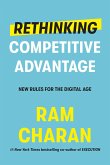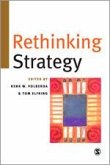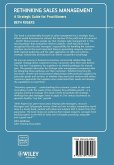At a time of ever-increasing debate about orthodox approaches to management education, and their application in the post-industrial era, this innovative book brings together the work of authors actively engaged in developing new forms of education. The introduction contrasts dominant utilitarian and functionalist conceptions of management education with various alternatives. It argues the need for a critical and pluralistic form of management education whereby participants are introduced to the full diversity of appropriate perspectives and debates. The remainder of the book echoes this commitment by exploring a range of approaches, including those based in psychoanalysis, critical theory and poststructuralism. Throughout the book, there is a focus is upon the implications of problematizing management knowledge so as to facilitate alternative and critical modalities of teaching and learning. In this context management is seen not simply as a bundle of skills and techniques but, rather, as a complex social, political and moral practice.
Hinweis: Dieser Artikel kann nur an eine deutsche Lieferadresse ausgeliefert werden.
Hinweis: Dieser Artikel kann nur an eine deutsche Lieferadresse ausgeliefert werden.
`The present collection opens up a variety of ways of looking at management education other than the prevailing one, which sees it as a fundamentally utilitarian enterprise charged with the responsibility for producing people who are technically more useful than others at the practice of management. As the opening chapter suggests, the practice of management is itself capable of being viewed from a variety of sociological angles, ranging from functionalism to critical theory, to the sociology of everyday life, to postmodernism. Consequently we cannot take anything for granted about the most appropriate way to look at management education. Instead we are led to several questions: should the accent be on the management or the education, what presumptions about these two concepts should be made explicit, and what bodies of literature might inform this conceptual clarification before we can say that management of education has beeen properly re-thought. The various authors then proceed to draw upon philosophy, from Plato (e.g. Gosling) to Descartes through to Heidegger (e.g. Kallnikos); critical social theory from Habermas to MacIntyre (e.g Roberts); critical education theory from Freire to Giroux (e.g. Cavanaugh and Prasad, Grey, Knights, and Willmott) to Foucault(e.g. Boje). The breadth of critical resources employed is therefore a strength of this collection.... In summary I would say that the book is a welcome and insightful attempt to rethink the matters at stake in management education from one critical perspective' - Management Learning `Each of the papers in this book is a rich working out of its particular theme, and each relates well to the agenda laid out by the editors in the introduction. The papers are challenging, mostly well written, and address fundamentally important issues for all who are involved in management education. The book lives up to its title, which should also be seen as a warning; academics involved in the field are likely to find themselves challenged on aspects of their own teaching. It might be particularly useful for management departments to take this book and work through it in seminars, and together to engage in "rethinking management education"' - The Occupational Psychologist








